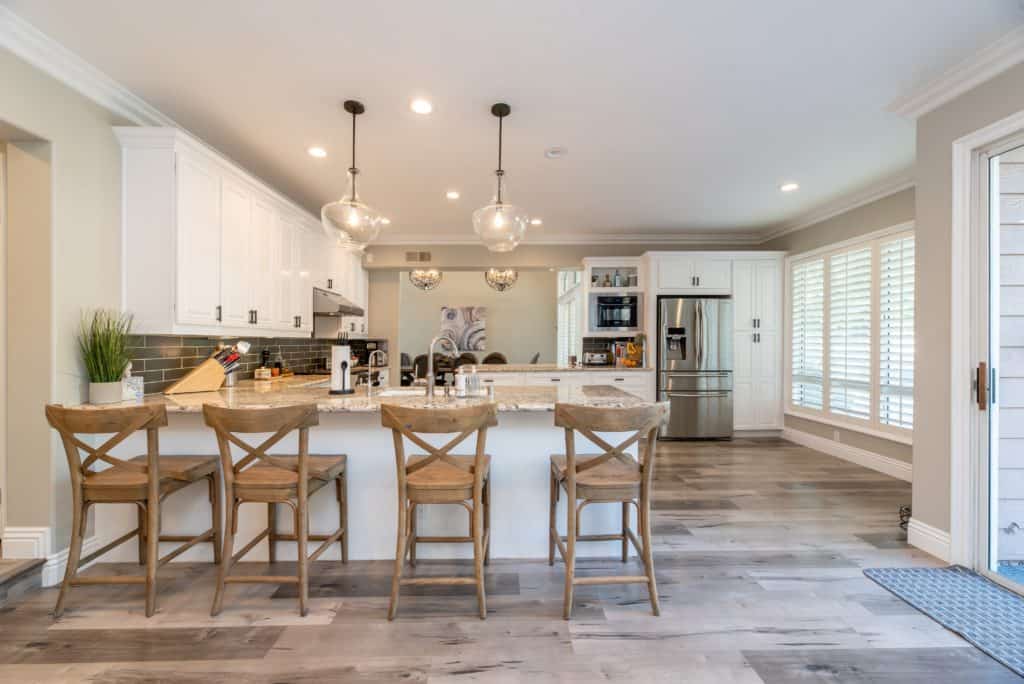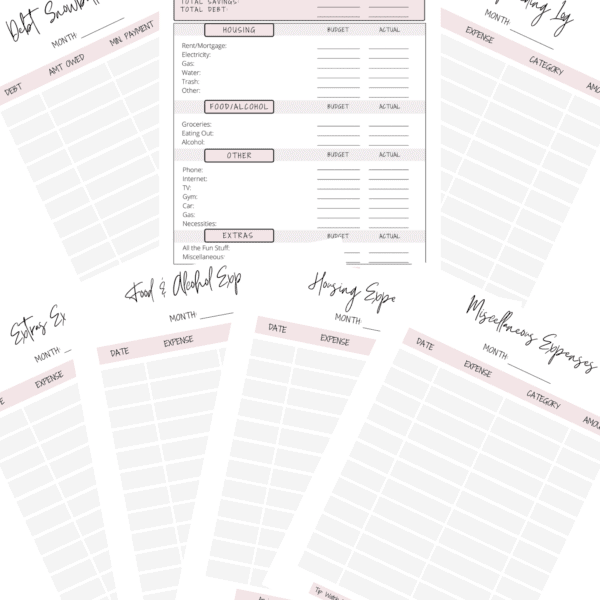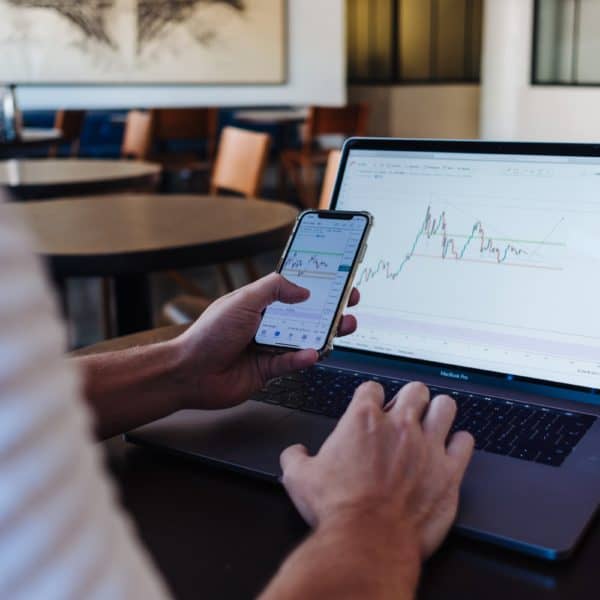This post is about the sunk costs of home ownership to be aware of when buying your first home.
You're considering buying your first home? CONGRATULATIONS!!
It's a HUGE step in life and probably one of the things you'll remember the rest of your life.

It can be very exciting, but also extremely overwhelming! It's important that you go into home ownership knowing everything about owning a home, which includes the many sunk costs you may not know about.
You should never purchase a home based on the monthly or total cost that you pay for the home.
In fact, the home purchase price is just the base cost of a home on a surface level. It's like the gateway cost.
The true cost of owning a home is much, much more than that.
Recommended:
- First Home Mortgage? 3 Things You Need to Look for to Score the Best Deal
- How to Refinance A Mortgage: Ultimate Beginner’s Guide
- How to Hang a Light Without the Cord Showing for Under $40
People always talk about home ownership “vaguely” when they say that owning vs renting is better because you're paying yourself. They aren't considering the sunk costs of home ownership or the other very important details that need to be analyzed.
For example, on my first home, I paid about $27,000 a year in “sunk costs” alone that I will never see again. That's actually not even very much! On a more expensive home, there would be far more and other factors play into it.
You need to thoroughly understand all of the costs of home ownership before purchasing your first home.
Let's dive in.
Sunk Costs of Home Ownership a First Time Home Buyer Should Know
To begin, your monthly payments will always include principal (equity). However, below are the additional sunk costs of home ownership to consider.
1. Interest
I'm sure this one is no secret. (If you're paying cash for the home, you won't need to worry about interest.)
However, if you're taking out a home loan (which most people are), this will be your largest sunk cost.
In fact, you'll pay more in interest than in principal for the first couple of years! (Principal is essentially the amount of equity you are putting into the home. Equity means ownership.)
Principal is the money that is invested into your home.
In the first couple of years, each monthly payment will have more interest going to equity than it does to principal.
Let me explain how it works.
For example, let's say you buy a home for $300,000 with a 30 year home loan that has a 4% interest rate. Over those 30 years, you will be paying $215,607 just in interest alone, plus the $300,000 in home costs. Therefore, the home will actually cost you $515,607 over the 30 year period.
Crazy, right?!
I remember when I first learned that, I thought people were crazy for buying a home!
It's normal though. You can see the amortization schedule for yourself in Financial Tools under “Calculators”. Feel free to calculate your own loan to see how much you'd pay in interest over the life of the loan.
2. Property Taxes
You will pay property taxes on your new home and it will probably be more expensive than you think.
Property taxes will vary based on your state, city, and county.
However, you'll want to find how much in property taxes to expect.
You can do this in 2 different ways:
- Go to the county tax assessor website. Enter the address of the house you're considering. Take a look at the tax history.
OR
2. Go to zillow.com or realtor.com and pull up the home you are considering. Scroll down and look for the property tax history.
Keep in mind that the property tax you pay will be based on the price of the home you pay.
Therefore, for exact estimates, I recommend calculating the property tax percentages based on the estimate of the home value from the tax history.
Use that percentage against your home price to determine what to expect in property taxes.
For example, mine is 1.27% of the home value. Yours will vary by state, county, and city.
In addition, you'll want to check if the neighborhood you're buying your home in has Mello-Roos taxes. I believe this is just a CA tax, but you may want to look into it to make sure.
3. Home Insurance
This cost is mandatory and you'll typically need a home insurance policy before you close on the home.
Do your due diligence and shop it out to find the best deal for you.
Often, companies like Sam's Club and Costco offer good deals on home insurance. Make sure you look at all options.
(Also, inexpensive doesn't mean it's good. You want to find that happy medium of a reputable company that is a good price. Trust me, you really don't want a bad insurance company.)
4. Natural Disaster Insurance
Natural disaster insurance will vary based on where your new home is located. Sometimes they are mandatory (if you're in a flood zone) and other times they are optional.
Either way, plan to confirm if these insurances are mandatory or optional. You'll also want to know how much they are in advance as they can easily cost hundreds of dollars per month.
For example, in California earthquake insurance is NOT mandatory, but it does cost several hundred a month so it is VERY expensive.
5. Private Mortgage Insurance
This is essentially an additional interest that you'll need to pay if you don't put 20% down. It will go away once 20% of the home is paid off.
PMI is added on for most loans, but not all.
6. Home Owners Association Dues
If the home is in a community with a HOA, there will likely be HOA dues.
A Home Owners Association can be a great thing in that they are often responsible for things like:
- Security
- Grounds Maintenance
- Parking Control
- Pool
- Gym
- Tennis Courts
- Basketball Courts
- Gates
- Parks
- Rules & Regulations
Confirm exactly what is covered under the HOA dues. You can even ask the HOA for their by-laws in advance.
Usually, a HOA is a love-hate relationship. I actually have two with my home and I find it to be very worthwhile.
My HOA not only keeps the grounds looking pristine within the community, they enforce the rules & regulations. This way, no homes can be painted a hot pink. =P
They also monitor the community with security and make sure the common areas only have residents attending. I actually like my HOA, even though the rules are sometimes a bit wacky.
(Yes, I got a notice one time because I didn't bring my trashcans in within 12 hours. I was annoyed at first, but then I realized they are just trying to keep the community looking nice, which I appreciate.)
Anyways, you'll want to verify the amount and frequency of these dues. Often, these costs can be outrageous so be cognizant of them and find a HOA that makes sense for your finances.
For example, I have several friends paying $750 a month for their HOA dues. YIKES! That is very high!! However, they feel it's worth it for the value they get. Some people may think my HOA is high, but I know it's a steal for what I get.
Therefore, make sure you do your own analysis and compare them to other neighborhoods in the city!
7. Repairs/Maintenance
They say you should plan to spend 1% of the home price per year on home maintenance and repairs.
The costs do add up and something always seems to go wrong, even in a brand new home!
In fact, brand new homes don't have the kinks worked out so you absolutely need to still plan for repairs/maintenance.
I have a friend that had a brand new home, but the fire sprinkler was faulty and ended up breaking on it's own.
If you've ever seen a fire sprinkler go off, you know it's no joke. It flooded her entire home within minutes.
New homes have issues as well so plan for maintenance and repairs, hopefully not to the extent my friend went through! *Sending positive vibes your way!*
Things happen. The first week of me being in my home (which was fairly new), the dishwasher was leaking and had to be replaced. Six months later, a water valve malfunctioned and flooded part of my home. (If you've noticed, water is no joke.)
It happens so plan for the expenses so that you're not caught off guard financially.
8. Electricity, Gas and Trash Bills
These are sometimes forgotten, but they are bills you'll certainly have to pay.
If you really want to do your due diligence, call the electric and gas company. Tell them the address of the home you're considering and ask them what the past few months bills were.
This will give you a good idea of what to plan for.
You can also ask the HOA or a neighbor what trash company picks up the trash cans in the neighborhood. Then, call to ask what the monthly payments will be.
9. Closing Costs
Your home loan will likely have closing costs so you'll want to prepare for those.
According to Zillow, home buyers will spend an estimated 2-5% in closing costs on their new home.
You can find loans that have no closing costs as I've done it many times before, but you need to do your due diligence to find them. You can read more about that here: First Home Mortgage? 3 Things You Need to Look for to Score the Best Deal
Sunk Costs of Home Ownership
There you have it! Hopefully this article doesn't deter you from buying a home. In fact, it should actually make you feel empowered!
The more you learn, the more knowledge you have to make the best financial decisions for yourself.
Now that you have the sunk costs to be prepared with, you can find a home that's best suited to your needs.
Feel free to visit my calculator page of all the real estate calculators you need to determine the home you can afford, mortgage cost to expect, and amortization schedule.
Good luck and CONGRATULATIONS AGAIN!!! =)
Recommended:
This website is a participant in the Amazon Services LLC Associates Program, an affiliate advertising program designed to provide a means for sites to earn advertising fees by advertising and linking to amazon.com.


Wow! This can be one particular of the most beneficial blogs We’ve ever arrive across on this subject. Basically Wonderful. I am also an expert in this topic so I can understand your effort.